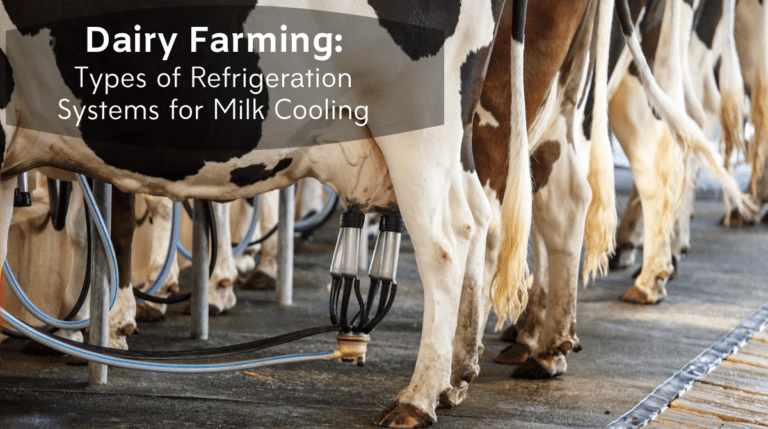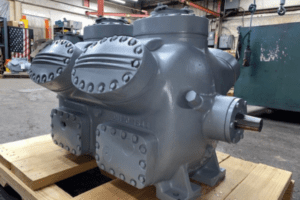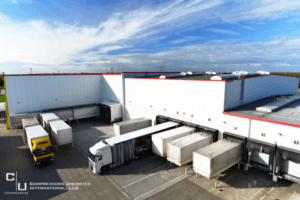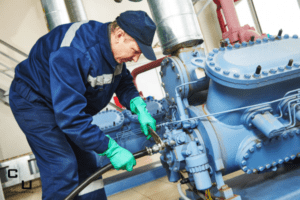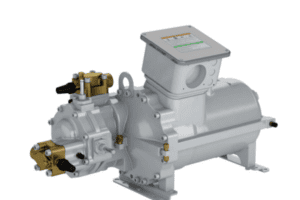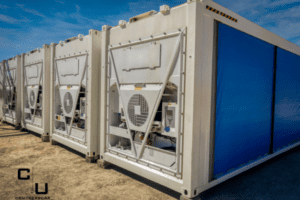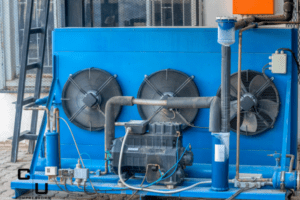Cooling systems are used to cool the milk by releasing the heat outside. Most cooling systems include a refrigeration compressor, a condenser unit (air-cooled), and a refrigerated bulk tank. Add-ons are often used to reduce the milk’s temperature before it reaches the refrigeration tank. Certain systems are designed to capture the heat and divert it through the water heater. This allows the water to be heated prior to entering the water heater, meaning less energy is wasted during the heating process.
Well Water PreCoolers
A well water precooler is used to cool the milk as it travels into the bulk tank. Cool well water (approximately 55 degrees F.) draws the heat from the milk and has the capability of lowering your overall milk cooling costs by as much as 60%. In order for precoolers to work effectively, their water capacity and water lines must be sufficiently large enough to handle the amount of milk being moved. If you plan on using a refrigeration heat recovery unit and a precooler of any kind, make sure to have an energy audit performed. RHRs and precoolers work against one another when it comes to energy usage.
Refrigeration Heat Recovery or RHR
Refrigeration heat recovery units are an efficient way of operating a cooling system. The heat that is extracted from the milk is then used to heat the water before it enters a water heater. With the water being warmed before it is transferred to the water heater, less energy will be needed to raise the temperature of the water. Normally the heat that is collected from the milk is vented outside of the system. By capturing the heat, less energy is wasted and the water is heated to the desired temperature much quicker than if the water had to pass through regular pipes.
Reciprocating compressors, often a model from Copeland, Carrier or Bitzer, use a piston/cylinder set up in which the refrigerant is drawn into the cylinder and compressed by the piston. Refrigerated gases are delivered through positive displacement. As the milk passes through the system, the pressurized gas works to drop the milk’s temperature and vent the heat away. With RHR systems, the heat is captured and vented into another system instead of being vented outside. This reduces overall energy waste and ensures that the system runs as efficiently as possible in terms of both heating the water and cooling the milk.
Proper Maintenance
No matter what type of refrigeration/cooling system you have, you need to keep it running at maximum efficiency. Having an annual maintenance check will keep it running in top gear. Maintenance checks involve cleaning the coils and other components as well as checking the unit’s pressure. It’s also important to check the refrigerant to make sure it is still viable. If it appears to bubbly or discolored, you should have your HVAC team perform a recharge.
Your dairy farm’s refrigeration unit is the key to making sure your milk stays fresh while it is being moved through the system. Without it, your milk would spoil long before it ever had a chance to leave your farm. Having the right type of unit and making sure that it is properly maintained at all times is the best way to keep your production levels high and your operating costs as low as possible.

